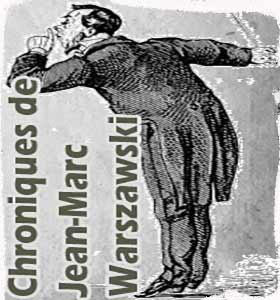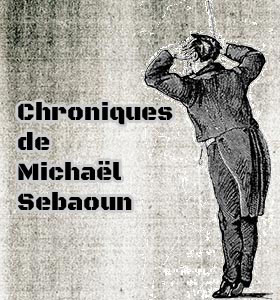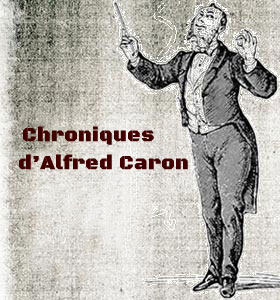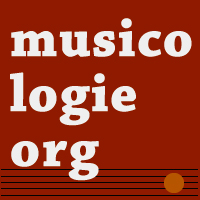Musicology and Its Future in Times of Crises
27-28 November 2020, Zagreb
Call for papers
International Conference on the Occasion of the 50th Anniversary of the Department of Musicology, Academy of Music, University of Zagreb
Deadline extension: 20 March 2020
website
Narratives of crisis seem to be a persistent condition of every generation’s history. Aside from their presence in everyday life and the fact that they are ingrained in the social and political sphere, discourses on crisis have become an inextricable feature of contemporary scholarship itself, perceivable in debates on the crisis of knowledge, reflections on the devaluation of the humanities, and discussions on the changing conditions of academic labour. Coupled with growing anxieties about the precarious position of musicological disciplines within the neoliberal university and larger systems of scholarship, these discourses condition the environment in which musicological research is conducted in an important way, bear upon the ways knowledge is (re)produced, and inevitably (although not always perceptibly) shape disciplinary futures.
Scholars across the field of music studies are invited to reflect on and address the issues proposed in the three thematic streams outlined below, as well as to contribute to the broader topic of the conference by sharing insights and reflections gained through their experience and research. We invite proposals for individual or co-authored paper presentations and/or themed panels.
STREAMS:
1. Reflecting on the Crisis of Musicological Knowledge
2. Responding to the Crisis of (Ir)Relevance
3. Resisting the Crisis of Academic Labour
4. Related research
1. Reflecting on the Crisis of Musicological Knowledge
At the level of musicological knowledge, the crisis manifests itself in the permanent doubts regarding the foundations of musicology and consequently in the vivid proliferation of disciplinary “turns”. In the moment of crisis, existing musicological knowledge is considered to be untenable and the limitations of its premises become evident. In such cases epistemology speaks of “paradigm changes”, which reveals as much as it hides about what is actually at stake. But what is going on in such
moments of crisis of musicological knowledge? Do paradigm changes in musicology imply a certain automatism? Do they occur consensually? Do they proceed without any resistance?
The first thematic stream could therefore focus on the following questions: Who has the right to announce the untenability of certain musicological knowledge? Is one obliged to follow such announcements? Does that right depend on the centrality or marginality of the position from which one speaks? How does such positioning define the relations between different national traditions of the discipline and between different subdisciplines within music studies? Are paradigm changes something that could be put into a programme or a manifesto (announcing a certain “musicology of the future” as the future of musicology)? Could the crisis of musicological knowledge be solved by importing perspectives from another discipline? Why do research paradigms change from time to time in certain settings, whereas in others they seem to be resilient to change? How do musicological paradigms age? Could the once outdated paradigms have any future?
2. Responding to the Crisis of (Ir)Relevance
The idea behind this thematic stream is to bring forward issues and modes of responding to crises within and outside of academia, with the tools of musicological scholarly knowledge. How could we today – more than twenty-five years after Philip Bohlman’s (1993) call – conceive of musicology as a political act? Although this question resonated across different musicological subfields, there is still room to consider whether subdisciplinary divisions helped or aggravated musicology’s relevance and visibility as well as its social responsibility.
Some of the questions that could be considered within this stream are: In the light of humanitarian emergencies, how can musicological epistemology help humanity and is there still room for academic activism? What is the role of musicology in the age of postmodern crisis of knowledge and post-truth – how can the discipline cope with the challenges and what is its responsibility within this context? In the current cultural and educational policies, where humanities are increasingly being pushed aside by market-oriented sciences, what are the arguments in favour of the discipline’s relevance, and how can musicology help in restoring the social awareness of the importance of humanities? No less important, who are musicology’s audiences today and what is the future of the discipline and its subfields within these contexts?
3. Resisting the Crisis of Academic Labour
It seemingly goes without saying that the labour of practicing, developing, and (re)imagining musicology rests almost exclusively on the shoulders of the scholars themselves. The issues of the complex intricacies of academic labour in musicology, nevertheless, still belong to one of the least-researched and only occasionally discussed topics in the discipline itself. Through this thematic stream, we encourage scholars to reflect on the changing conditions of academic labour in a historical perspective as well as contemporary institutional practices and offer their perception on the myriad ways organisational governance, the extensification/intensification of work and individual(ized) responses to structural transformations of workplace affect the sustainability and future of musicological disciplines.
Some of the following questions are aimed at opening the space for further discussion within this stream: How do the structural features of contemporary universities and other academic institutions affect our everyday experiences of research and teaching? How and why do the individual (gendered, classed, racialized etc.) experiences of academics seem to escape our critical attention? How does the increasing scarcity (luxury?) of time dedicated solely to (funded?) research affect the development of the discipline of musicology? How do contemporary pressures of competitiveness and dictate of “measurable” excellence stand in relation to mutual support and solidarity among scholars? What does the exclusive reliance on short- term project-based market-oriented funding bring to the survival of smaller disciplines and the precariousness of academic labour in them? What is the (emotional, mental, corporeal, existential) cost of work (not) being done (Gill 2010)?
4. Related Research
Beside the above outlined thematic streams, we welcome research-based contributions to other aspects of the broader symposium topic of musicology and its future.
Keynote Speaker : Nicholas Cook, University of Cambridge
Conference language: English
Guidelines for proposal submission:
• individual or co-authored papers (20 minutes + 10 minutes discussion):
title and abstracts of up to 300 words, up to 6 keywords
• themed panel sessions of three or four individual papers (60 minutes + 15 minutes discussion)
title and abstracts of up to 300 words per paper
panel title, and up to 300 words outlining the general theme of the panel, up to 6 keywords
Due Date and Submission
please submit proposals (including a short biography and institutional affiliation) by 20 March 2020 via email in a Word document attachment
send email to: abstracts.zgm50@muza.hr
decisions regarding proposals will be communicated by the Program Committee to authors around 15 April 2020
additional information: https://www.muza.unizg.hr/zgmusicology50/en/
Contact email address for local arrangements: info.zgm50@muza.hr
Costs
The costs of travel and accommodation will be covered by participants. The registration fee is €50 (€30 for PhD students). It covers the costs of conference materials, coffee breaks and refreshments as well as the conference reception.
Venue
The symposium will be held at the Academy of Music in Zagreb, Trg Republike Hrvatske 12, 10000 Zagreb
Program Committee
Ivan Ćurković (chair), Academy of Music, University of Zagreb
Samuel Araujo, School of Music, Federal University of Rio de Janeiro (UFRJ)
Zdravko Blažeković, Graduate Center of the City University, New York
Hana Breko Kustura, Croatian Academy of Sciences and Arts, Zagreb
Ana Čizmić Grbić, Academy of Music, University of Zagreb
Naila Ceribašić, Institute of Ethnology and Folklore Research, Zagreb
Dalibor Davidović, Academy of Music, University of Zagreb
Monika Jurić Janjik, Academy of Music, University of Zagreb
Vjera Katalinić, Croatian Academy of Sciences and Arts, Zagreb
Sanja Kiš Žuvela, Academy of Music, University of Zagreb
Mojca Piškor, Academy of Music, University of Zagreb
Ingrid Pustijanac, Department of Musicology and Cultural Heritage, University of Pavia
Cornelia Szabó-Knotik, Institute for Musicology and Performance Studies, University of Music and Performing Arts, Vienna
Jelka Vukobratović, Academy of Music, University of Zagreb
Local Arrangements Committee
Ivan Ćurković (chair), Academy of Music, University of Zagreb
Ana Čizmić Grbić, Academy of Music, University of Zagreb
Dalibor Davidović, Academy of Music, University of Zagreb
Sanja Kiš Žuvela, Academy of Music, University of Zagreb
Monika Jurić Janjik, Academy of Music, University of Zagreb
Mojca Piškor, Academy of Music, University of Zagreb
Jelka Vukobratović, Academy of Music, University of Zagreb
Trg Republike Hrvatske 12, 10000, Zagreb, Hrvatska




 À propos - contact |
S'abonner au bulletin
| Biographies de musiciens | Encyclopédie musicale | Articles et études | La petite bibliothèque | Analyses musicales | Nouveaux livres | Nouveaux disques | Agenda | Petites annonces | Téléchargements | Presse internationale | Colloques & conférences | Collaborations éditoriales | Soutenir musicologie.org.
À propos - contact |
S'abonner au bulletin
| Biographies de musiciens | Encyclopédie musicale | Articles et études | La petite bibliothèque | Analyses musicales | Nouveaux livres | Nouveaux disques | Agenda | Petites annonces | Téléchargements | Presse internationale | Colloques & conférences | Collaborations éditoriales | Soutenir musicologie.org.
Musicologie.org, 56 rue de la Fédération, 93100 Montreuil, ☎ 06 06 61 73 41.
ISSN 2269-9910.

Jeudi 5 Décembre, 2024

